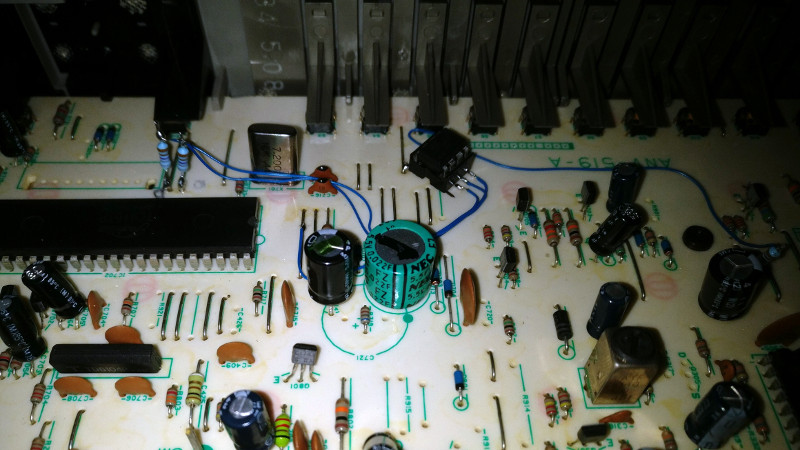In 1984 there weren’t many ways to listen to high-quality music, so an FM tuner was an essential part of any home hi-fi system. The Pioneer TX-950 picked up by [The Curious Lorenz] would have been someone’s pride and joy, with its then-cutting-edge microprocessor control, digital PLL tuning, and seven-segment displays. Astoundingly it doesn’t have an auto-tuning function though, so some work to implement the feature using an ATtiny85 was called for.
A modern FM tuner would be quite likely to use an all-in-one tuner chip using SDR technology under the hood, but this device from another era appears to be a very conventional analog tuner to which the PLL and microprocessor have been grafted. There are simple “Up” and “Down” buttons and a “Station tuned” light. One might imagine that given these the original processor could have done autotune. At least the original designers were kind enough to provide the ATtiny with the interfaces it needs. Pressing either button causes it to keep strobing its line until the “Station tuned” line goes high, at which point it stops. It’s an extremely simple yet effective upgrade, and since the ATtiny is so small it’s easily placed on top of the original PCB. The result is an ultra-modern tuner from 1984, that’s just that little bit more modern than it used to be.
If you don’t have a vintage FM radio, you can always build its modern equivalent.
















auto-tune has an altogether different meaning and is best reserved for that matter. however, ‘automatic tuning’ and ‘automatic frequency control’ is what NEC called it in their 1984 patent application. ..at least that’s how it was later translated into English by (or for) them.
The radio already has enough of the original meaning of auto-tune!
Interesting how important the 19kHz stereo signal is not just for decode but for tuning.
You should check out a Sansui T-7. Will tune up and down via a motor. Really fun to watch it work. It had a way better implementation where it used a capacitive touch sensor to tell when you grabbed the knob and wanted it to stop autotuning. Also uses a discrete mosfet for the tuner input, which does all sorts of nice things that modern single chip devices just can’t due to their small size. The T-7, not to be confused with a T-7M, is not very expensive on eBay either, but don’t buy one unless the seller is charging at least $25+ for shipping… It is somewhat fragile as it was designed right at the cusp of the the great HiFi fall.
I used to have one of those. The motor driver would try to keep the station centered in the tuning despite the FM, so if you put your ear to the cover, you would hear a lowpass version of what the station was transmitting.
Sometimes the station you want is 9 miles and a minor mountain range away. Hopefully there’s a way to turn off this feature so you can listen to more marginal stations.
Should be easy enough in software to detect long presses vs. short presses of the tuning buttons.
My Yamaha RX-385 has this feature.